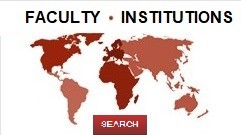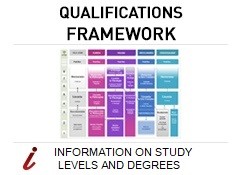Ecclesiastical Institutions of Higher Education (Apostolic Constitution Veritatis gaudium)
Nature
On the one hand, Universities, Colleges, Faculties, and other ecclesiastical institutions “are particularly concerned with Christian Revelation and questions connected therewith” while, on the other hand, they promote other sciences “which, although lacking a special link with Christian Revelation, can still help considerably in the work of evangelizing.” Under this aspect, “they are looked at by the Church when they are erected as ecclesiastical Faculties and, therefore, have a special relationship with the Church’s Hierarchy” (Sapientia christiana, Foreword II).
The aims that are entrusted to ecclesiastical higher education institutions are:
• to study the various domains of so-called ecclesiastical sciences in depth;
• to carefully prepare candidates to the priestly ministry, the teaching of sacred sciences, and the apostolate’s most difficult tasks;
• to “collaborate intensely, in accordance with their own nature and in close communion with the Hierarchy, with the local and the universal Church in the whole work of evangelization”.
Legislation
These Institutions are regulated by a common academic legislation that applies worldwide and is based on the Code of Canon Law (CIC canons 815-821), the Apostolic Constitution Veritatis gaudium, implementation Norms (Ordinationes), and particular Decrees of the Dicastery.
According to these laws, the Congregation’s responsibilities in relation to ecclesiastical Universities and Faculties are more challenging than it is the case with Catholic Universities:
• they can be established only if erected or approved by the Dicastery;
• they award academic degrees by the authority of the Holy See; hence, no University or Faculty, that was not erected or approved by the Dicastery, can validly award academic degrees with canonical effects in the Church;
• the individual ecclesiastical Universities and Faculties must have their statutes and curricula approved by the Dicastery;
• they depend on the Dicastery for their guidance;
• their Rectors or Presidents are appointed, or at least confirmed, by the Dicastery;
• all teachers, before being appointed to permanent posts or promoted to higher academic ranks, or in both cases, based on what is laid down in the Statutes, require the Dicastery's “nihil obstat”.
Anyhow, please bear in mind that ecclesiastical Faculties, that are part of Catholic Universities, are regulated by the Apostolic Constitution Veritatis gaudium.
Academic Degrees
These institutions award academic degrees under the Authority of the Holy See. The civil recognition of academic ecclesiastical degrees is regulated, under the national legislation in which the Institution operates, according to international conventions – and pursuant to the Concordats stipulated with the various countries, if any are in place. Studies are organized in three cycles, at the end of which students obtain the corresponding academic degrees: baccalaureate, licentiate, or doctorate.
Academic Relations
Then, we have academic institutions all over the world that are connected to ecclesiastical specialist Faculties or Institutes that award academic degrees of the Holy See in the name of the Academic Institution they are connected to. Such connected degrees are:
• Affiliated Institutions – affiliation is the link between a Faculty and an Institution where only the first cycle is offered, in order to grant the corresponding academic degree through the Faculty.
• Aggregated Institutions – aggregation is the link between a Faculty and an Institution where only the first and second cycles are offered, in order to grant the corresponding academic degrees through the Faculty.
• Incorporated Institutions – incorporation is the inclusion of an Institute within a Faculty, when the Institute offers either second or third cycles or both, in order to grant the corresponding academic degrees through the Faculty.
• The Higher Institutes of Religious Sciences (HIRS), which only provide first and second cycle courses, are connected to an ecclesiastical Faculty of Theology, which takes on the academic responsibility for the Institute. HIRSs aim to promote the religious formation of lay and consecrated persons, in order to train professionals who are able to work in contemporary society’s cultural and operational contexts.
• Lastly, there are several ecclesiastical academic centers which are academically organized as “ad instar Facultatis” Institutions, or differently, and award the corresponding ecclesiastical degrees.





